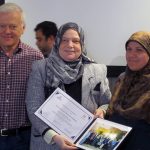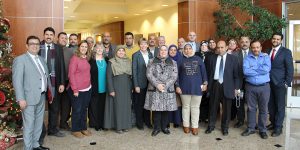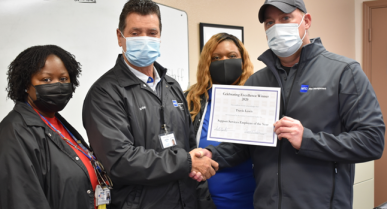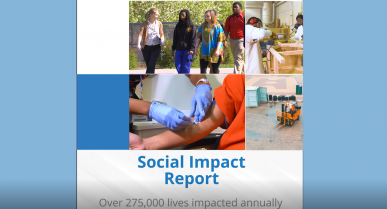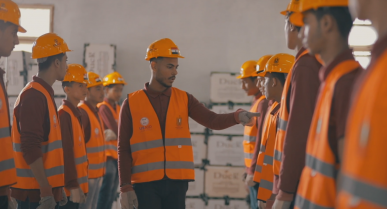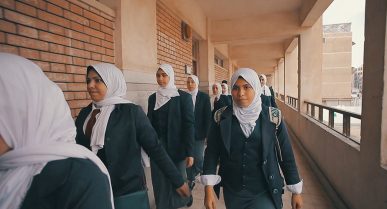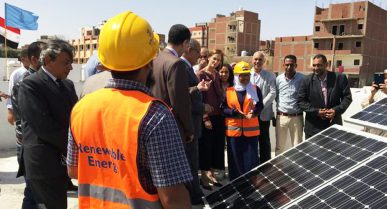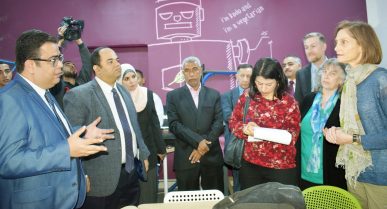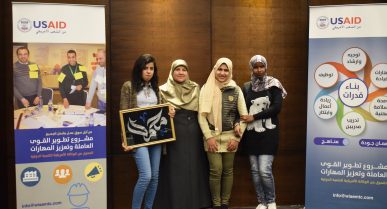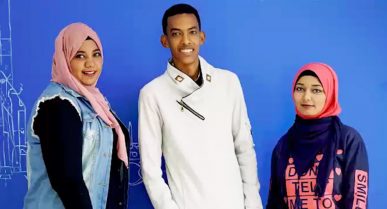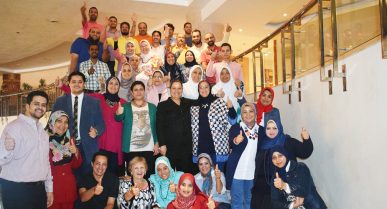MTC Strengthens Overseas Project with Visit from Educational Leaders in Egypt
 MTC is helping thousands of young people in Egypt gain workforce skills, learned in technical schools, that will lead to successful careers and more secure lives.
MTC is helping thousands of young people in Egypt gain workforce skills, learned in technical schools, that will lead to successful careers and more secure lives.
The training is part of the Workforce Improvement and Skill Enhancement or WISE project and is funded by the U.S. Agency for International Development (USAID). The mission of the WISE project is to improve technical school secondary education in Egypt.
“The fact in Egypt for a long time is technical education was not the center of the focus for the ministry,” says Hashem Hessain, General Manager, Egypt’s Central Administration for Commercial Education. “We started to try and improve the technical education in Egypt. And we started to try and identify the gaps in our technical education system and our schools as well. And we started to try and improve those gaps, and try to improve the skills of the graduates so they could match the skills needed in the labor market in Egypt and in the region as well.”
Led by MTC Vice Chair Jane Marquardt, MTC’s Economic & Social Development division is leading those efforts and held a training conference at MTC offices in Utah. Principals from some of the 66 trade schools that partner with MTC in Egypt and national ministry officials came for the training which included touring different types of trade schools in Utah.
“Welcome to Utah,” said Jane Marquardt to the group of visitors. “Beyond how important this project is to MTC, it’s also important to us as a country to welcome you all here. So, we hope what we have planned for you is an incredibly enriching educational week. Not only do we hope to share our information with you, but we know we have a lot to learn from you.”
The group discussed strategies to improve the technical schools and curriculum as well as ways to move to a competency-based training system.
“Competency-based education is very important, added Mohamed Fawzy, Deputy Chief of Party for Egypt WISE, “because competency based means skills, attitude, and knowledge. And, combining them together gives you competency. And you can translate that to learning outcomes. This is very important because competency is based on labor market needs. And then we can build a curriculum based on those competencies.”
The group also explored developing partnerships with the local business community and trade unions so that the training can be customized to meet employer demands. In the end—this means more students in Egypt find good jobs.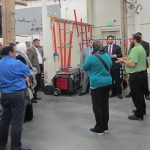
“Partnering with those kind of organizations is facilitating unemployment, said Mr. Fawzy. Opportunities for jobs. Opportunities for internships. Opportunities for teacher training. So, by engaging industries, employers, and labor associations it is helping a lot at achieving the program goals.”
In Egypt, at age 15, students must decide if they will pursue academics or a technical education where they may find more job opportunities. But this group agrees that students in technical schools must still continue to improve in academics, social skills, and innovative thinking.
Mr. Fawzy stressed, “It’s not about the schools. It’s about the aptitude of the students. It’s about their skills. It’s about labor-market needs. You give them the chance to learn how to start their own business. They can learn how to go to funding institutions. They can learn how to markets their own products and how they can employ others.
The Egypt WISE tour and conference presented by MTC and Egypt’s Ministry of Education and Technical Education provided participants with new ideas and tools to better serve their students in Egypt.
